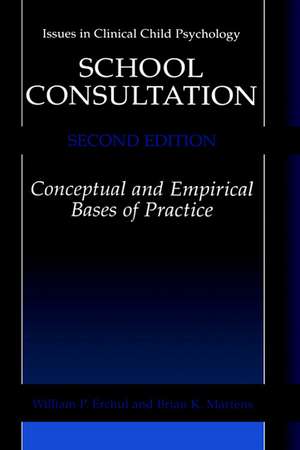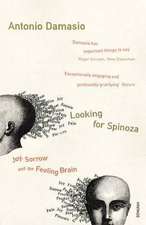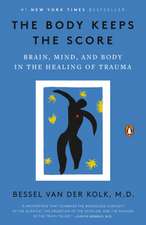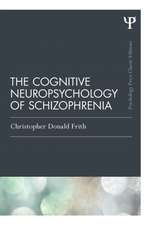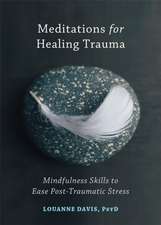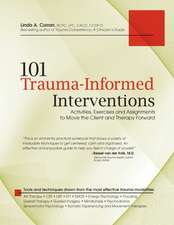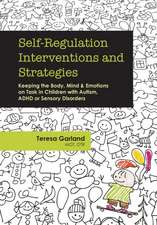School Consultation: Conceptual and Empirical Bases of Practice: Issues in Clinical Child Psychology
Autor William P. Erchul, Brian K. Martensen Limba Engleză Hardback – 31 dec 1996
| Toate formatele și edițiile | Preț | Express |
|---|---|---|
| Paperback (1) | 1282.63 lei 6-8 săpt. | |
| Springer – 15 mar 2012 | 1282.63 lei 6-8 săpt. | |
| Hardback (2) | 372.03 lei 6-8 săpt. | |
| Springer Us – 31 dec 1996 | 372.03 lei 6-8 săpt. | |
| Springer – 18 mar 2010 | 1605.01 lei 6-8 săpt. |
Din seria Issues in Clinical Child Psychology
- 5%
 Preț: 1346.28 lei
Preț: 1346.28 lei - 18%
 Preț: 722.58 lei
Preț: 722.58 lei - 18%
 Preț: 2116.32 lei
Preț: 2116.32 lei - 5%
 Preț: 2144.78 lei
Preț: 2144.78 lei - 5%
 Preț: 1318.81 lei
Preț: 1318.81 lei - 18%
 Preț: 1662.70 lei
Preț: 1662.70 lei - 5%
 Preț: 1444.63 lei
Preț: 1444.63 lei - 18%
 Preț: 1831.42 lei
Preț: 1831.42 lei - 5%
 Preț: 1131.72 lei
Preț: 1131.72 lei - 15%
 Preț: 645.79 lei
Preț: 645.79 lei - 5%
 Preț: 1437.86 lei
Preț: 1437.86 lei - 18%
 Preț: 1835.21 lei
Preț: 1835.21 lei - 18%
 Preț: 2105.58 lei
Preț: 2105.58 lei - 5%
 Preț: 1941.84 lei
Preț: 1941.84 lei - 18%
 Preț: 1824.95 lei
Preț: 1824.95 lei - 5%
 Preț: 1343.45 lei
Preț: 1343.45 lei - 18%
 Preț: 1008.91 lei
Preț: 1008.91 lei - 5%
 Preț: 721.19 lei
Preț: 721.19 lei - 5%
 Preț: 1429.44 lei
Preț: 1429.44 lei - 5%
 Preț: 719.59 lei
Preț: 719.59 lei - 15%
 Preț: 647.27 lei
Preț: 647.27 lei - 18%
 Preț: 1234.14 lei
Preț: 1234.14 lei - 18%
 Preț: 1842.16 lei
Preț: 1842.16 lei - 18%
 Preț: 949.42 lei
Preț: 949.42 lei - 5%
 Preț: 1130.43 lei
Preț: 1130.43 lei - 15%
 Preț: 591.29 lei
Preț: 591.29 lei - 18%
 Preț: 1126.52 lei
Preț: 1126.52 lei - 18%
 Preț: 950.52 lei
Preț: 950.52 lei - 18%
 Preț: 1245.84 lei
Preț: 1245.84 lei
Preț: 372.03 lei
Preț vechi: 391.61 lei
-5% Nou
Puncte Express: 558
Preț estimativ în valută:
71.19€ • 74.32$ • 58.92£
71.19€ • 74.32$ • 58.92£
Carte tipărită la comandă
Livrare economică 05-19 aprilie
Preluare comenzi: 021 569.72.76
Specificații
ISBN-13: 9780306454561
ISBN-10: 0306454564
Pagini: 232
Ilustrații: XVI, 232 p.
Dimensiuni: 156 x 234 x 22 mm
Greutate: 0.5 kg
Ediția:1997
Editura: Springer Us
Colecția Springer
Seria Issues in Clinical Child Psychology
Locul publicării:New York, NY, United States
ISBN-10: 0306454564
Pagini: 232
Ilustrații: XVI, 232 p.
Dimensiuni: 156 x 234 x 22 mm
Greutate: 0.5 kg
Ediția:1997
Editura: Springer Us
Colecția Springer
Seria Issues in Clinical Child Psychology
Locul publicării:New York, NY, United States
Public țintă
ResearchCuprins
1. Introduction to Consultation.- 2. Promoting Change in Schools.- 3. The School as a Setting for Consultation.- 4. Bases of an Integrated Model of School Consultation.- 5. Model Description and Application.- 6. Selecting and Evaluating School-Based Interventions.- 7. Teachers as Consultees.- 8. Students as Clients.- 9. Consultation Case Study.- 10. Epilogue: The Effective Practice of School Consultation.- References.- About the Authors.- Author Index.
Recenzii
`Although this appears to be a small book, Erchul and Martens have packed it with information...The authors do a thorough job of addressing all known (as established by research) reasons that consultation may fail...If you are currently providing consultation services to the school, then this is a must read book.'
Contemporary Psychology, 43:3 (1998)
Contemporary Psychology, 43:3 (1998)
Notă biografică
William P. Erchul, Ph.D., is a Professor of Psychology at North Carolina State University, where he served as Director of the School Psychology Program from 1987 to 2004. He received his B.A. in Psychology and Communication Arts from the University of Wisconsin-Madison, and his Ph.D. in Educational Psychology with a specialization in School Psychology from the University of Texas at Austin. He has worked for the Human Interaction Research Institute in Los Angeles and has been a consultant to various North Carolina school systems, public agencies, and private businesses. Dr. Erchul is a Fellow of the American Psychological Association and the American Academy of School Psychology, a recipient of APA's Lightner Witmer Award (given in recognition of early career research contributions to the field of School Psychology), an elected member of the Society for the Study of School Psychology, a recipient of the North Carolina School Psychology Association's Excellence in Staff Development Award, and has been recognized as an outstanding faculty researcher at NCSU. He has been President of the North Carolina Inter-University Council on School Psychology; Vice-President of Publications, Communications, and Convention Affairs of APA’s Division of School Psychology; and Executive Producer of The Conversation Series for the Division of School Psychology. Dr. Erchul is board certified in school psychology by the American Board of Professional Psychology (ABPP) and has served as President of the American Academy of School Psychology. His primary research program centers on interpersonal processes and outcomes associated with psychological consultation. Dr. Erchul has produced approximately 100 journal articles, book chapters, and other scholarly works, as well as three books. He has been associate editor of School Psychology Quarterly and guest editor of special issues of the School Psychology Review and the Journal of Educational and Psychological Consultation.He also has served on the editorial review boards of five scholarly journals.
Brian K. Martens, Ph.D., is a Professor of Psychology and Associate Chair of the Psychology Department at Syracuse University. He received his B.S. in psychology from Colorado State University, and earned his Ph.D. in 1985 from the APA-approved program at the University of Nebraska-Lincoln. Dr. Martens’ research is concerned with translating findings from basic operant studies into effective school-based interventions, functional assessment and treatment of children’s classroom behavior problems, and the instructional hierarchy as a sequenced approach to skill building. His scholarly record includes more than 100 published research articles, books, chapters, and invited reviews in the areas of applied behavior analysis, school consultation, and instructional intervention. Dr. Martens is a past Associate Editor of the Journal of Applied Behavior Analysis and School Psychology Quarterly, and currently serves as a Guest Associate Editor or Editorial Board member for five journals. Dr. Martens received the Lightner Witmer Award from Division 16 of APA in 1990, was named Outstanding Teacher of the Year at University College in 1995, and is a past member of the Board of Directors of the Society for the Experimental Analysis of Behavior. He was elected to Fellow status in Division 16 of APA in 1996, elected as a member of the Society for the Study of School Psychology in 2001, and named one of 90 Distinguished Alumni from the Teachers College at the University of Nebraska in 1997. Dr. Martens received the Editorial Appreciation Award from School Psychology Review in 2002 as well as the Excellence in Graduate Education Faculty Recognition Award from Syracuse University in 2006.
Brian K. Martens, Ph.D., is a Professor of Psychology and Associate Chair of the Psychology Department at Syracuse University. He received his B.S. in psychology from Colorado State University, and earned his Ph.D. in 1985 from the APA-approved program at the University of Nebraska-Lincoln. Dr. Martens’ research is concerned with translating findings from basic operant studies into effective school-based interventions, functional assessment and treatment of children’s classroom behavior problems, and the instructional hierarchy as a sequenced approach to skill building. His scholarly record includes more than 100 published research articles, books, chapters, and invited reviews in the areas of applied behavior analysis, school consultation, and instructional intervention. Dr. Martens is a past Associate Editor of the Journal of Applied Behavior Analysis and School Psychology Quarterly, and currently serves as a Guest Associate Editor or Editorial Board member for five journals. Dr. Martens received the Lightner Witmer Award from Division 16 of APA in 1990, was named Outstanding Teacher of the Year at University College in 1995, and is a past member of the Board of Directors of the Society for the Experimental Analysis of Behavior. He was elected to Fellow status in Division 16 of APA in 1996, elected as a member of the Society for the Study of School Psychology in 2001, and named one of 90 Distinguished Alumni from the Teachers College at the University of Nebraska in 1997. Dr. Martens received the Editorial Appreciation Award from School Psychology Review in 2002 as well as the Excellence in Graduate Education Faculty Recognition Award from Syracuse University in 2006.
Textul de pe ultima copertă
Since its emergence during the 1960s, school consultation has become an important vehicle for delivering psychological and educational services. Cooperative efforts between skilled consultants and teachers, rooted in the principles of problem solving, social influence, and professional development, enhance student learning and adjustment while encouraging consultees to be more effective and proactive in their practice.
The Third Edition of School Consultation: Conceptual and Empirical Bases of Practice shows in expert detail how this relationship works by synthesizing mental health and behavioral models of consultation with the most effective evidence-based practices (e.g., implementation support, response to intervention) informing the field today. The authors provide real-world contexts for all participants in the equation—consultants, teachers, students, staff, and the school itself—and thoroughly review consultation processes and outcomes for a contemporary practice-oriented approach suited to the new consultant, trainee, or researcher.
Key features of the Third Edition include:
The Third Edition of School Consultation: Conceptual and Empirical Bases of Practice shows in expert detail how this relationship works by synthesizing mental health and behavioral models of consultation with the most effective evidence-based practices (e.g., implementation support, response to intervention) informing the field today. The authors provide real-world contexts for all participants in the equation—consultants, teachers, students, staff, and the school itself—and thoroughly review consultation processes and outcomes for a contemporary practice-oriented approach suited to the new consultant, trainee, or researcher.
Key features of the Third Edition include:
- An integrated mental health/behavioral model for school consultation.
- An organizational study of the school as a setting for consultation.
- Assessment issues and strategies particularly relevant to school consultation.
- Approaches to providing teachers with implementation support.
- Conceptual models for selecting academic and behavioral interventions.
- Administrative perspectives on school consultation.
- A real, transcribed case study analyzed by the authors.
Caracteristici
Promotes a scientist-practitioner viewpoint by providing guidance for the practice of school consultation based on research findings Offers a preliminary integration of the consultation literature with the emerging RTI/problem-solving literature Considers school consultation as a type of interpersonal influence process, and then applies relevant literature on behavioral change to explain and affect change in consultees, clients, and classrooms Includes supplementary material: sn.pub/extras
